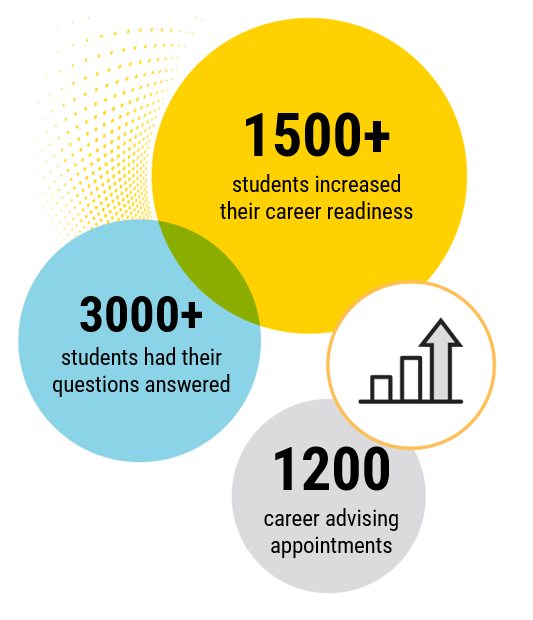

 Career Education
Career Education
Our Career Team was busy building student career readiness!
3000+ students had their questions answered through drop-in co-op and career advising.
We helped Science students with over 1200 career advising appointments.
1500+ students increased their career readiness though workshops.
 Cooperative Education
Cooperative Education
Co-op was busy growing, boosting student earnings and adding lots of new programming!
![]() Co-op students earned a total of over $3.5 million this year.
Co-op students earned a total of over $3.5 million this year.
We arranged over $428,500 in wage subsidy funding to support 77 Science students secure employment with McMaster faculty and staff.
![]() We grew co-op admissions by 36 students this year.
We grew co-op admissions by 36 students this year.
Over 4000 Science students applied for co-op roles on OSCARplus.
![]() We partnered with 200+ employers.
We partnered with 200+ employers.
We engaged 50+ new co-op employers this year.
We posted over 750 Science co-op positions.
![]() Science co-op students completed 491 co-op work terms.
Science co-op students completed 491 co-op work terms.
We held 133 Science co-op events, providing opportunities for students to connect with employers, fellow students and alumni.
 New Initiatives
New Initiatives
We started some exciting new initiatives this year!
We held our first Co-op Alumni event. 22 Co-op alumni returned to support 65 current co-op students with advice and guidance.
We added a Co-op Ambassador Program. 13 ambassadors across 7 co-op programs share their experiences with younger students and answer questions they might have about co-op.
We initiated a Co-op Café to mitigate the isolation of remote working.
We brought back the Co-op Advisory Committee where 20 student Committee Members have the opportunity to provide feedback and drive continuous improvement in Science Cooperative Education.
We helped start an exciting Biological and Game Design Partnership with George Brown College, whereby, led by Dr. Rosa da Silva, Biology students collaborate with Game Design students to create an immersive biological video game.
![]() This project has been funded in part by the Government of Canada’s Innovative Work-Integrated Learning program and CEWIL Canada’s iHUB.
This project has been funded in part by the Government of Canada’s Innovative Work-Integrated Learning program and CEWIL Canada’s iHUB.

